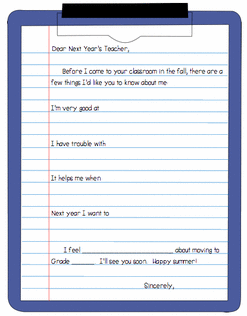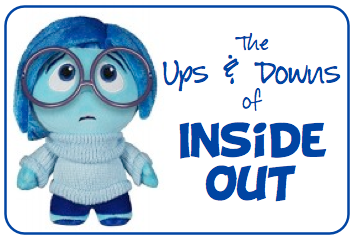|
My daughter and I saw Inside Out yesterday (at the theater! less than a week after it was released!). Did I love it? Yes! Was it as cool as I thought it was going to be? Absolutely! Will it become the new cornerstone of my counseling activities in the fall? Well... no.
First the good news. I thought the movie was brilliant (and judging by the woman down front loudly laughing her head off at some of the more adult humor, I wasn’t the only one). The visuals were amazing of course, and the story was engaging on multiple levels for adults and children. I laughed, I cried. There were some fantastic themes that I will absolutely be using in individual, small group, and classroom lessons (for a terrific list of some of them, see this blog post by Heather at The Helpful Counselor). In fact, I’ll probably try and create a few lesson plans and share them before the end of the summer, so check back in August. The very best thing---among so many---about Inside Out is its primary message: that all feelings have a purpose. Even the unpleasant ones. Of course as a counselor I already knew that, but this movie drove it home in a way that made me feel somewhat guilty. While I have a high comfort level sitting with kids’ unpleasant feelings, I’m also often a kind of cheerleader. “You’re right, that really stinks,” I’ll say, about some problem or another a kid is having. “BUT (insert Suzy Sunshine spin here)...” I need to tone that down, I think, in order to help my students feel more heard and understood. “Drive-by empathy” is probably not the best tool in my toolbox. So I loved the movie and learned an important lesson---all totally worth the $20 and 50,000 buttered popcorn calories. Now here’s where I become just a teensy bit critical about two things (my big BUTs...). First, Joy is responsible most of Riley’s memories, especially the core memories that form aspects (“islands”) of her personality. My immediate thought was that I work with a lot of kids whose core memories were not created by Joy, but by Anger or Fear. Do I then allow them to believe that the bad things that have happened to them define who they are? Ouch. I have to think more about how I’ll deal with this. Second, in my work I teach a lot of CBT (Cognitive Behavioral Therapy) concepts. The basic philosophy is that your thoughts about an event shape the way you feel about it and, therefore, how you respond to it. If you change your thoughts, you can often change your feelings and actions. To use a common example, if someone cuts me off in traffic I might think (because I drive in Massachusetts), “Hey, that asshat just purposely cut me off!” Then I get extremely angry and lay on my horn or give the one-fingered salute (because I drive in Massachusetts). However, if I stop and think that maybe that person simply didn’t see me, or is rushing to the hospital to see an injured family member, I’m not going to get angry. Or not as angry, because, Massachusetts. Here’s my biggest issue: throughout the movie, Riley is at the complete mercy of whichever of her feelings is at the control board in Headquarters. Her feelings control her behavior, and the vice is never versa (to coin a phrase). She’s not the captain of her own ship. Since one of my core beliefs is that we can change our feelings by changing our thoughts, I only give Inside Out 1.85 thumbs up (but zero one-fingered salutes, so that's good). I'll definitely use it in counseling, but will put my own spin on it. So what else is new? I would love to hear what you think! Do you agree, or do you think I’m being a picky asshat? Discuss.
3 Comments
 So we're down to the final two weeks of this seemingly endless year (thanks for nothing, Old Man Winter) and to be perfectly honest, I'm running out of steam. Regardless, kids still must be seen and activities still must be related to IEP goals. This week I came up with the admittedly unoriginal idea of having students write to their next year's teacher (even they don't know yet who that will be). I have so many anxious and/or quirky kids who've worked hard to develop their own set of strategies, that I figure it will do everyone good. I know the new teachers will definitely appreciate the info. And it is always interesting for me to see how the kids choose to describe themselves. Here's the link to the worksheet. May it help you pass your last week or two productively! Next up on my to-do list: planning for summer school... |
Author
|


 RSS Feed
RSS Feed